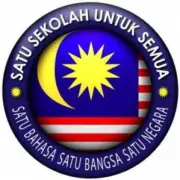An NGO, The Federation of Malay Development and Education Organisation, invited former Finance Minister, UMNO Vice President and Semangat 46 President, Y.B.M. Tengku Tan Sri Razaleigh Hamzah as the speaker for this round’s lecture series. Tengku Razaleigh gave a lecture titled “The Thoughts and Vision of Tun Abdul Razak in the Nation Building-Nation State, Across Ethnic Boundaries”. It was held at the Main Hall, Akademi Islam, Universiti Malaya. The lecture was in Malay and 150 people attended.
The video can be viewed from Malaysia Today (www.malaysia-today.net)
Tengku Razaleigh started by saying Tun Abdul Razak was a very visionary man and his thoughts were much ahead of his time. At a time where the nation was still lack of so many essential services and basic needs, he had slowly crafted a solution to bring the nation forward.
According to Tengku Razaleigh, the British had a very cunning “Divide and Rule” manner, where different ethnic group were treated and managed with different set of policies and pace, regardless by design or default. The most glaring policy differences that were planned and implemented were on developmental economics and education.
Developmental economics then, can be called as “segregation economics”. The were serious disparity between the ethnic groups, their economic standing and progress and productivity, were at different level. The rural areas, where generally the Malays live, were left undeveloped where as the industries and commercial activities were carried out specifically in the urban areas; where the British placed the Chinese. The Indians were mostly in the estates.
Therefore, there is a serious poverty and under development issues amongst the Malays, who were the majority of the people in Malaya, being shunned away from the basic needs, essential services and infrastructure. The employment and vocation patterns shows further disparity. The Malays were only allowed subsistence economy status. The Chinese, however, were encouraged working the tin mines, then opening businesses and do trading. The Indians worked as estates and railroad / public work labourers. Some Indians, from the British experience in India, were allowed to practice technical and professional services.
Tun Razak saw that continuous socio-economic standing gap and further disparity between the ethnic group will one day create a serious imbalance in the country. This, will hinder the nation building and nation state process and goal.
He then devised a specific plan to correct this problem and it is about a more equitable solution to this ethnic related problem, left by the British.
One is education. In 1955, Tun Razak created a special committee. This committee comprises representatives of all races and includes the British educationists produced a report known as “The Razak Report” which recommended:
1. The entire school system within Federation of Malaya should adopt and implement one uniformed system; a common content syllabus
2. The post Merdeka education should use a uniformed national language by all schools
According to the report “Education in Malaya should aim to bring together the children of all races under a national education system in which the national language is the main medium of instruction though we realize that progress towards this goal cannot be rushed and must be gradual”, Razak Report, Ch.11, Pg. 12.
It was taken to the Federal Legislative Assembly and enacted as the Education Ordinance 1957 (superceding an earlier Education Ordinance, put in place by the British in 1952).
National language is a tool for national unity. It is a tool to bridge the cultural and religious divide between the different ethnic groups. National integration could be fostered there on.
The other is affirmative developmental socio-economic plans. When the serious social and economic disparity widens in the late 60s and the Malays being underdeveloped state were left where else the rest of the nation progress, a racial unrest easily erupted when provoked.
The National Operation Council (NOC) assumed the country’s management as the Parliament was suspended, due to the racial riots of 13 May 1969. Tun Razak chaired the NOC and instructed an economic development policy which is more ‘integrative and co-operative’ and fairer, between the ethnic group, is put in place.
To achieve that, the Malays, being the 60% of the people, had to have their economic standing be alleviated to at least 30% of the economy, within an initial time frame of twenty years.
Their underdevelopmentness in the rural areas should be addressed. Programs to ensure infrastructure, access to essential services and communications and develop their economic activity beyond subsistence economy, must be developed and implemented in order to make ‘the playing field more level’, especially between the Malays and non Malays.
The economic cake needs to expanded so that the Malays can play in the game by not taking from the non Malays existing portions. An extension to the economic cake is to provide the 30% requirements of the Malays.
A consultation between all the parties were called (with the exception of DAP, which refused!) and they came to a consensus. The New Economic Policy (NEP) was born in August 1971.
Tengku Razaleigh explained that NEP was not against free market principles. NEP is a tool just to adapt and allow the Malays into the free market game. He also explained the NEP is a structured social re-engineering package and it is actually a National Agenda (not a Malay Agenda). It is necessary to form national integrity.
Tengku Razaleigh further said even the developed West also adopt ‘Affirmative Social Actions’. President Bill Clinton adopted this policy to narrow the widening gap suffered by the Black Americans.
Some people called Tun Razak a socialist. Actually, Tun Razak mixed between the principles of free market economy and a pro-under developed-rural developmental national economy. Tengku Razaleigh reiterated that NEP is not about taking away from any ethnic group but expand the economy to incorporate the developmental economics programs.
Another important topic which Tengku Razaleigh touched is National Culture Policy (NCP). NCP is about a tool of national integration and unity. NCP main components are:
1. The indigenous peoples’ culture is the core basis of the National Culture
2. Other cultural elements which are suitable and able to be assimilated into the National Culture will be allowed
3. Islam is the very important aspect in the development of the National Culture
Tengku Razaleigh explained that the NCP does not intend to ‘Malay-nised’ the culture or ‘Islamize’ the faith of the non Malays. NCP will be the model the foster common national values. In short, NCP is a ‘social re-engineering’ plan to integrate Malaysians, crafted by Tun Abdul Razak.
Tun Razak also wanted the Malays to shed off the “rural mindset” and start to adopt “urbanization thinking”. Tengku Razaleigh then went on to tell about his long, close working relationship with Tun Razak, beginning in 1962 till the latter’s demise in 1976. Tun Razak had asked Tengku Razaleigh to start and develop landmark agencies such as Bank Bumiputra, PERNAS and Petronas.
Tengku Razaleigh reminded that its not Government’s duty to go into business. The one of the responsibility of the Government is to induce investments from abroad, to generate economic activities. The Government, however, has moral duty to protect the country’s sovereignty not allow the land within these borders be economical assets of powers from elsewhere.
Tengku Razaleigh ended his lecture by asking everyone to go back to Tun Razak’s thinking and policies, for the betterment of the Malays and the others, as well as the nation.
Amongst those in the audience was former Prime Minister and UMNO President Tun Dr. Mahathir Mohamad. Tun Dr. Mahathir was then invited by the organizing Chairman, Tan Sri Arshad Ayub, to off-the-cuff address the seminar.
Tun Dr. Mahathir took the rostrum and talked how he was given a second chance by Tun Razak and appointed as the Education Minister in 1974, after being sacked from UMNO earlier by Tunku Abdul Rahman Putra. He also explained that Tun Razak was instrumental to ensure that Dato’ Hussein Onn appointed him as his Deputy.
Tun Dr. Mahathir sportingly said that he had differences with Tengku Razaleigh once. However, he went on saying that he allowed many people who went against him to comeback to the fold for the sake of Perjuangan, even appointed some of them as Cabinet Ministers, including the current Prime Minister. Tun Dr. Mahathir coyly joked that he almost took Tengku Razaleigh back into the Cabinet one time but after an article appeared in Far Eastern Economic Review, the former had to “review” the appointment. This two men’s sportsmanship drew laughter from the audience.
Tun Dr. Mahathir last word was he considers himself to be a Tun Razak man as well. However, he has his own interpretations to Tun Razak’s social re-engineering package plan and consider this a ‘norm’, although some people might interpret the variations as “differences”.
Although the weather was terrible, it was indeed a very good afternoon to have the two best Malay minds, on the same platform.
*photos taken from photo-blogo-journo Mr. Jinggo’s posting in MyKMU.net forum (www.forum.mykmu.net)










Brother:
Why do you think TDM was willing to be at the same function with TRH? Think hard, and I am sure you will know the answer…. A very interesting development, isnt it??
“..It was indeed a good afternoon to have the two best Malay minds, on the same platform.”
Are you sure bro??
These two great Statesmen has no longer any political ambition to speak of.
thus their sincerity is no longer in question.They were the policy makers closest to the Generation of Tun Razak ,who understood the poverty of people in thre rural areas at that time.
Sadly the poverty still exist rearing its ugly head refusing to go…its easy for present leaders of UMNO to be lulled into believing that we have eradicated poverty in rural masses.The criteria used and reminded upon the kg folks again and again is how fortunate of them to have water and electricity supply ,a nice school for their children to go to or perhaps a better road system to ride on.Isnt it just the right of every citizen and responsibility of any Goverment to provide such facilities?
How much capable are poor Malays rural youth in dealing with Globalization?They are ill equip with skills and education would soon be asked to compete with better train foreigners who offered their skills at cheaper cost.
Without the advantage of reasonable minimal wage,the companies would continue hiring forigners thus sidelining bigger and bigger no of ‘unemployable’ youths.
With low qualities graduate churned out by Universities finding it difficult to get jobs,what chance is there for these youth to gain asses to mainstream economy of the country?They would only be hired to work in fastfood joints,as security guards or any lowpaying jobs.Even that we influx of cheaper labours from Indonesia,Pakistan and Nepals the employers tend to shun them away too.
UMNO at kg levels are filled with ‘yesman’ committe members who themself lulled into believing that their rentseeking business is the business models able to stand the onslought of globalization.Their business saviness is so ‘paperthin’solid ,yet they yelp a loudest bark.Parading their new found material wealth in the form of luxury cars attesting to their business saviness for everyone to see.
The failure of NEP to trickle down to the poor masses is purely of UMNOputras doing.
The Malay is the one who are killing their brethren…and they are happily doing so.
Let’s give our undivided support to these two statesmen to save our country, for the sake of our children, grandchildren and generations to come.
Let’s not be fooled by those who pretend to help us but will not hesitate to mortagage the country to enrich themselves.
[…] Kemudian, Tun Dr. Mahathir juga apabila secara terbuka “memberikan sokongan” kepada satu masa dulu seteru politik semasa dalam UMNO iaitu Tengku Tan Sri Razaleigh Hamzah, kini sedia ‘mengorbankan’ kepentingan peribadi dalam satu syarahan diUniversiti Malaya dan mengimbau kembali pemikiran Allahyarham Tun Abdul Razak Hussein. […]
Razak engineering works is a fabrication workshop in msa, kenya. The undisputed leaders in eng works
[…] Ahmad Badawi disatukan, Kuli menghadiri satu forum bersama Mahathir Mohamad untuk mempertahankan warisan politik Abdul Razak, iaitu Dasar Ekonomi Baru dan Dasar Kebudayaan Kebangsaan. Bukankah ia berlaku hanya setahun […]